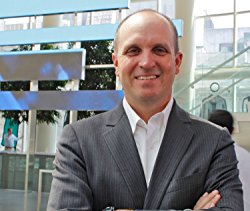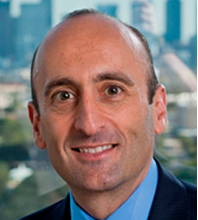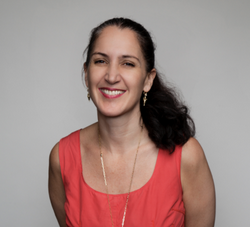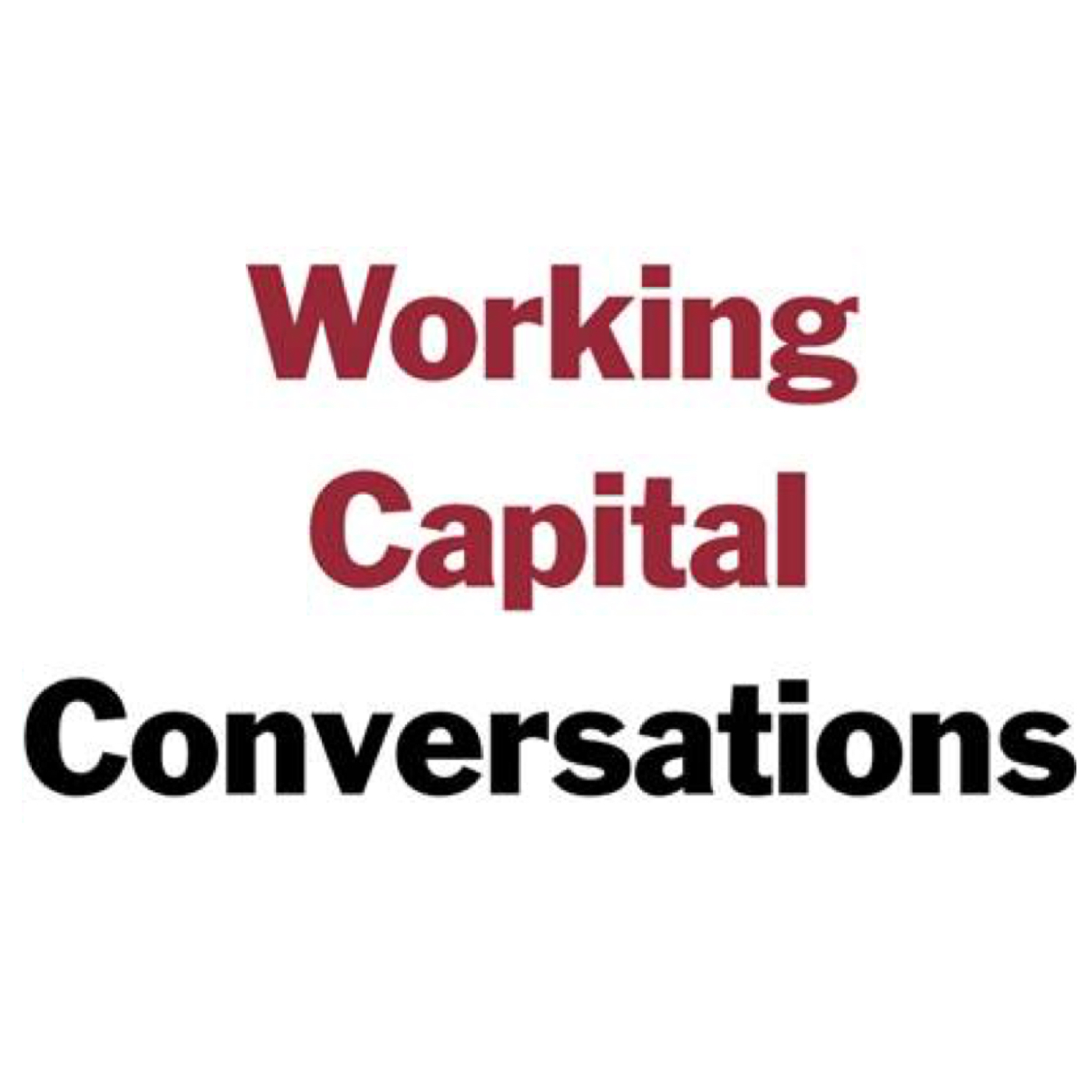Episodes

Monday Jul 17, 2017
The Business Case for Corporate Social Responsibility
Monday Jul 17, 2017
Monday Jul 17, 2017
Be honest – when you think about Corporate Social Responsibility, what comes to mind? Colleagues taking an afternoon off to build a house or paint a schoolyard? Perhaps, a fundraiser to send money across the world for an emerging environmental concern?
Well, if you haven’t been paying attention, a massive transition has occurred in corporate social responsibility, or CSR.
CSR is now more about hands on, deeply embedded activity that not only delivers direct benefit to the city or country where corporate employees and leaders visit, but also measurable benefit accruing back to the business itself. When done right, CSR has moved from a nice to have – a highlight in the annual report – to a concrete business opportunity generator.
- Why has this transition occurred?
- How does this new approach work?
- And specifically, how do businesses themselves benefit?
One person to ask is a fellow who helps companies do it every day. Paul Benson is Senior Corporate Partnerships Development Manager at Voluntary Service Overseas. VSO works with corporations and volunteers globally to actively support and affect Sustainable Development Goals. Since 1958, VSO has engaged over 43,000 volunteers to work on international development programmes in more than 120 countries.

Monday Jul 17, 2017
Sweat Equity: Inside the New Economy of Mind and Body
Monday Jul 17, 2017
Monday Jul 17, 2017
You’ve seen them nearly everywhere – from Soul Cycle to Flywheel to Equinox and beyond. Boutique fitness outfits that might seem, at first glance, to be engaging, if not mildly costly places to get or stay in shape.
And if that’s how you see them, you’re only half right. The part you’re missing – Big fitness is also big business.
In fact, health, wellness and fitness, as the sector is called, is now estimated to be $3.4 trillion global industry. And as you’d expect, that has attracted the full range of financial players: From private equity to big banks, entrepreneurs to seasoned managers.
So while fitness has been around for decades, how did this industry experience exponential growth in just the last one? What are the trends – social, fashion, even status – behind the movement? Are they sustainable?
Jason Kelly is the person to ask. Jason is Bloomberg’s New York Bureau Chief. His first book was “The New Tycoons: Inside the Trillion Dollar Private Equity Industry That Owns Everything,” but his most recent one explores, as he puts it, “an entire economy… in apparel, gear, and entry fees” that has formed around people’s “pursuit of wellness.” His book is “Sweat Equity: Inside the New Economy of Mind and Body.

Monday Jul 17, 2017
Corporate Boards Need Investor Relations Expertise
Monday Jul 17, 2017
Monday Jul 17, 2017
It’s no secret that corporate boards have increasingly come under increased scrutiny. And for good reason. From corporate scandal to CEO compensation, from cyber security to risk, investors and the general public want to know who’s in charge – and who’s keeping an eye on management.
And with this scrutiny, the makeup of corporate boards is slowly shifting, too – away from clubby groups and towards a collection of experts — finance, human resources, law, and more.
But what about Investor Relations? As new board level issues emerge from seemingly endless directions – and as investors demand more answer more quickly – should boards more strongly consider adding the IR perspective?
Robert D. Ferris certainly argues they should.
Ferris is an investor relations and crisis counselor expert, with more than four decades of experience with both domestic and foreign issuers. He’s also a former chairman of National Investor Relations Institute’s Senior Roundtable.

Monday Jul 17, 2017
Investing Into Uncertainty — Lessons from Endowment Investing
Monday Jul 17, 2017
Monday Jul 17, 2017
Warren Buffett once said on CNBC: “The world—there’s always uncertainty. Now the question is, what do you do with your money?”
Buffett may have been talking about public markets – even personal – investing. But even on the institutional side, given that we are continually surrounded by uncertainty and given that stuffing cash under a mattress – while relatively certain – carries no financial return, how should today’s institutional investors think about uncertainty?
More specifically, is there a way to consider uncertainty –use it as an investing philosophy – to drive outsized returns?
And if so, where can we turn for a guide?
It turns out there is a small group of long-horizon end investors who consistently perform well in private markets. Their superior performance in this area of investing has contributed heavily to their overall superior long-term performance.
That group is endowments.
And if investing into uncertainty feels like a potentially uncomfortable approach, it’s also one that Daniel Feder has discussed, practiced, and succeeded with for years.
Feder is the Managing Director of Private Markets at the Washington University Investment Management Company. That’s the group that runs the endowment for Washington University in St. Louis. Previously Feder served as Managing Director of Private Markets for the Sequoia Capital Heritage Fund, an endowment-style investment fund sponsored by Sequoia Capital. He also served as Senior Investment Manager in the endowment services area at TIAA-CREF, and Managing Director at Princeton University Investment Company, the investment office for Princeton University’s endowment, where Dan led the development of a $4.0 billion global private equity and venture capital portfolio.

Monday Jul 17, 2017
Monday Jul 17, 2017
Private equity, of course, is a core part of most large institutional investors’ portfolios. How core?
As of last year, some 90% of large U.S. public pension funds maintained allocations to private equity – an investment amount that totalled nearly 10% of all U.S. pension assets. In fact, for some global endowments, public pension systems and sovereign wealth funds around the world, the dollar-weighted average proportion of total AUM invested in private equity had increased from 6% to 12% in just the previous two years.
But while private equity continues to grow as an asset class, many LPs seek new strategies, moving beyond the traditional fund investments, including co-investments, co-sponsorships, and even direct investments – bypassing the PE firms completely.
Within this evolution of investment opportunities, a new approach has quietly been gaining traction. It’s called Solution Capital — highly customised transactions tailored for sellers who want to keep a substantial minority interest in the business being sold.
How does Solution Capital work? Why would a seller consider this route? What’s its probability for success?
Nate Sleeper is a Partner at Clayton, Dubilier & Rice. He has led or participated in dozens of these investments across a range of sectors.

Friday Jul 14, 2017
E-Commerce Innovation with Liza Landsman, Jet Chief Customer Officer
Friday Jul 14, 2017
Friday Jul 14, 2017
As we approach the depths of the Christmas buying season, today we head straight to the core of holiday spirit: e-commerce and online shopping.
Chances are, if you’re shopping this season – or, really, any day of the year – you do some, if not all of it, online. Few industries are bigger than e-commerce, with online sales expected to break $400 billion within three years.

Friday Jul 14, 2017
Strategic Conversations: ‘The Biology of Corporate Survival’
Friday Jul 14, 2017
Friday Jul 14, 2017
A recent Harvard Business Review piece by Martin Reeves and Simon Levin laid out the case. It’s titled “The Biology of Corporate Survival.” Numbers explain why it matters:
After reviewing the histories of more than 30,000 U.S. public firms over 50 years, the authors found that “Businesses are disappearing faster than ever before.”

Friday Jul 14, 2017
Economics of Successful Partnerships: Josh Lerner
Friday Jul 14, 2017
Friday Jul 14, 2017
The premise behind any business partnership seems obvious: Build a structure and set of rules around performance and profits that not only create agreed upon fairness, but more importantly, position the partnership for long-term success.

